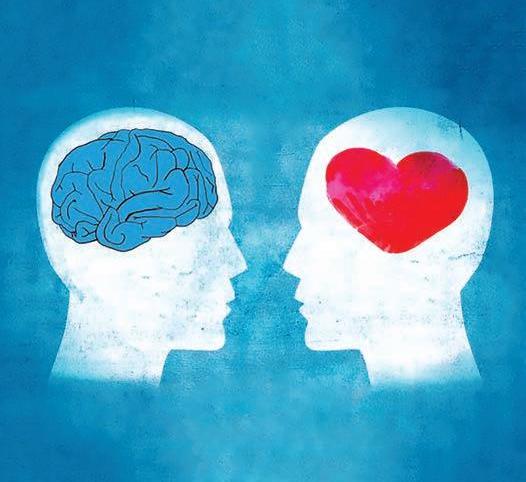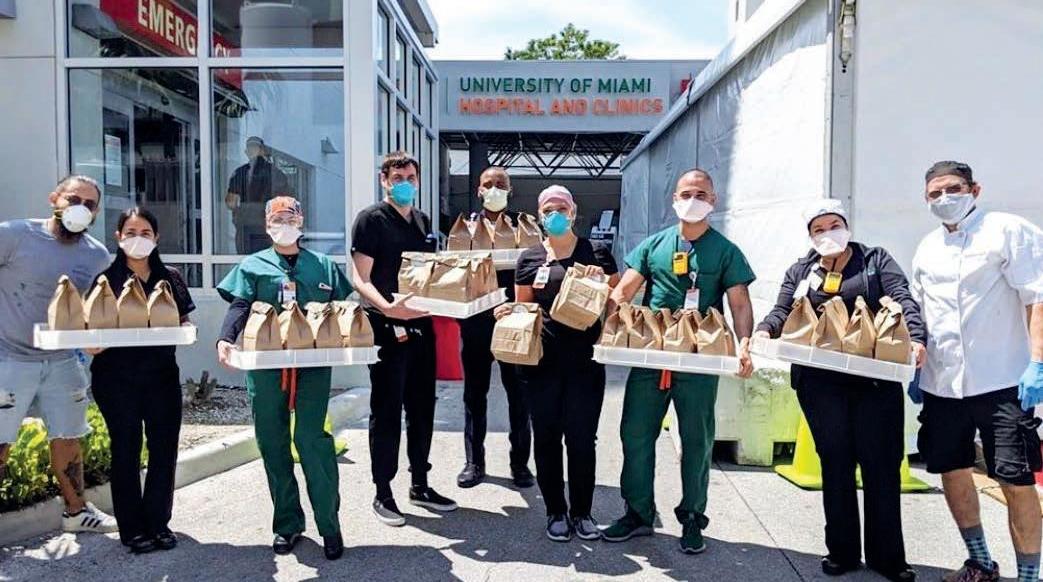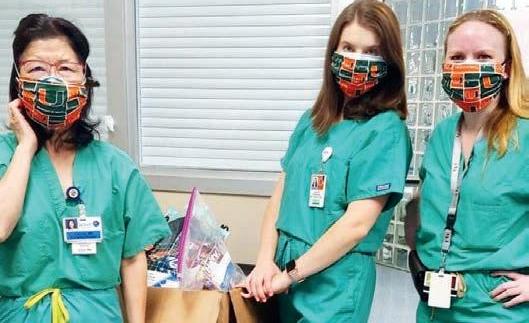
3 minute read
Kindness in the Time of Coronavirus
from BrainStorms Spring Edition 2020
by University of Miami Department of Psychiatry and Behavioral Sciences
An overview of brain studies recently published in NeuroImage revealed how kindness is expressed in the brain—and it’s visually uplifting. When scientists looked at brain scans of people performing generous acts or even thinking altruistically, the “kindness”centers of the brain lit up.
They also noted that there were two kinds of kindness: strategic and altruistic. As the name implies, with the first type, you expect something in return for your good behavior. In type two, the action has no reward in mind, except for wanting to do good. Both resulted in a rush of positive feelings. Still, each activates different parts of the brain: the striatal region for when you're expecting some reward, the subgenual anterior cingulate cortex when doing altruistic good. What's more, a generous act also affects the ventromedial prefrontal cortex, which plays a big part in making those decisions that bond us together.
Kindness is a miracle drug, and its potent effects are especially needed in these fraught times. Perform a kind act for a friend, neighbor, or stranger, and it will boost your mood. Kindness remaps the brain. “When you’re kind,” explains Dr. Felicia Gould, a clinical neuropsychologist with the University of Miami Health System, “it’s not only the other person who feels good. You feel good too. It’s a win-win situation.” Felicia Gould, PhD
So what does all this surge in brain activity mean?
“Kindness has incredible health benefits,” Dr. Gould adds. “And it doesn't have to be a big thing. It can be a small act.”
Years of research have shown that acting kindly releases essential brain chemicals that help us feel better. For example, kindness pumps up serotonin production. This neurotransmitter has a calming and anti-anxiety effect. Some believe it can even give your immune system a boost.
Kindness also releases dopamine, a chemical messenger that, among its many duties, can make you feel good. It’'s been nicknamed “helper’s high.” Even witnessing a kind act prompts your body to produce oxytocin. Often referred to as the “love hormone,” oxytocin is released when we're physically intimate and when mothers breastfeed. It's the chemical that makes us feel more loving, more optimistic, more trusting, and more generous.
There's more evidence of the health benefits of kindness: Doing good is a natural painkiller because it produces endorphins. It tends to reduce stress. (Kind people have been shown to have 23% less cortisol, the stress hormone.) Kindness can also lower blood pressure. (Oxytocin releases nitric oxide, a chemical that dilates blood vessels.)
photo credit: Instagram @thehungrypost
“In a way, while we’re helping others and helping communities, we're also helping ourselves,” Dr. Gould says.
In the era of COVID-19, when people are fighting over toilet paper, and the mere sound of a cough can scare us, Gould believes an act of kindness, random or otherwise, can go a long way in defeating anxiety. Here are her suggestions:
l Start with kindness towards yourself. Eat healthy, get enough sleep, physical activity, and outdoor time. Follow the doctor’s orders. “You have to be kind to yourself and take care of yourself, to be able to take care of others,” she says. l Be gentle in your language. You may be tempted to make a snarky comment on social media—after all, we’re all under stress—but resist the temptation.“Instead, use words of affirmation. Use supportive, kind language. That goes a long way.” l Be patient. “Don’t honk at the car in front of you when the light turns,” she says. “You don’t know what’s going on in that person’s care, health, and life.” l Use social media to connect and be kind toward others. Socializing remotely and “rallying your friends to connect, while being as inclusive as possible” is an act of kindness. l Do a Zoom chat with friends. Set up a virtual group playdate for your child. Being proactive in maintaining social connections helps you and others.

l Don’t hog up supplies. “Somebody might need it more than you do.” l Donate to charity if you are able. Pick one that is likely to be most affected by this crisis— food banks, say, domestic violence shelters,
United Way. l Use your imagination to recreate the milestone events social isolation has canceled. “Celebrating helps everyone involved.” l Keep in touch. Send funny videos of yourself.
“I have a friend who anonymously sent flowers to all her friends with a note that read ‘pay it forward,” Gould says. “That makes everyone feel good.”
Ana Veciana-Suarez is a regular contributor to the University of Miami Health System. This article originally appeared in UMiami Health News.




